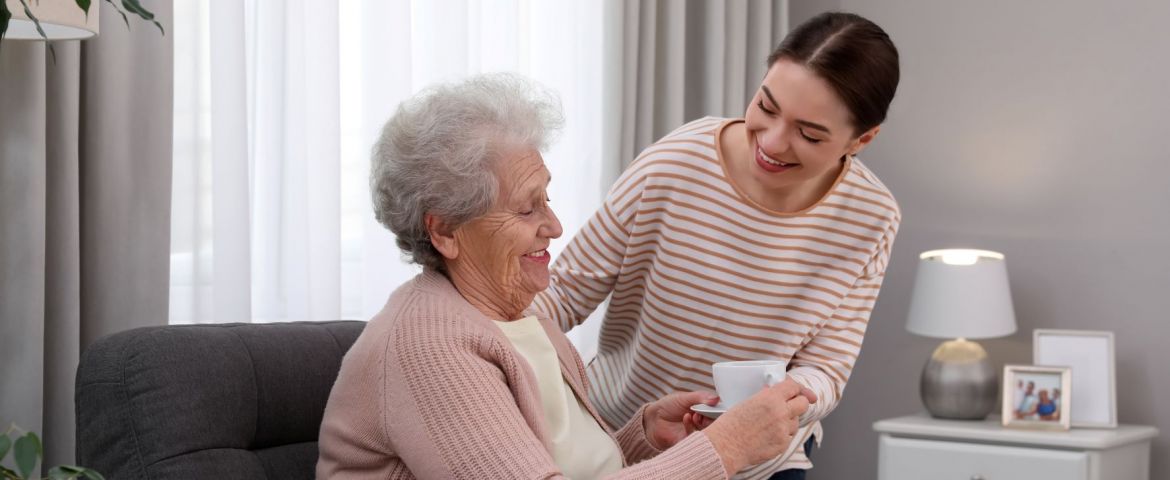Taking care of an elderly parent or loved one at home is a compassionate, selfless act. But it gets tricky when you want to talk about your own needs—some people feel they’re being selfish or negative by acknowledging that they have wants and needs outside of being a caretaker. This isn’t the case at all. It’s normal and healthy to want to take steps to ensure you’re not all-consumed by caretaking. In fact, not doing so leads to exhaustion and burnout. Elder care can be stressful, but that doesn’t mean you have to struggle.
If you’re taking care of an elderly parent or loved one, remember the following advice:
Schedule “me time.”
It’s not selfish to need or take some “me time.” In fact, it’s necessary for your mental health. Schedule regular time for yourself so you can indulge in self-care—whether that takes the form of an online yoga class, a long walk or a coffee meeting with friends. Taking time for yourself that doesn’t include running errands or doing chores will help you maintain your sense of self outside your role as a caretaker.
Spend quality time outside of caretaking duties.
It’s only natural that you might fall into a caretaker/patient relationship with your loved one.  But that doesn’t mean you should lose track of your personal connection with each other. Spend time together that doesn’t involve caretaking, like gardening or playing a favorite card game or watching a movie together. Maybe you have a shared hobby that you can explore together. Maintaining a relationship outside of the patient/provider dynamic will help you both feel supported and loved.
But that doesn’t mean you should lose track of your personal connection with each other. Spend time together that doesn’t involve caretaking, like gardening or playing a favorite card game or watching a movie together. Maybe you have a shared hobby that you can explore together. Maintaining a relationship outside of the patient/provider dynamic will help you both feel supported and loved.
Perform self-wellness checks.
Take time every week to ask yourself:
- “Have I been getting enough sleep?”
- “Am I hydrated?”
- “Have I been eating nutritious meals?”
- “Am I feeling anxious, sad, overwhelmed?”
It’s easy to forget about your own physical and mental wellbeing when you’re taking care of another person, so it’s important to always check in with yourself and make sure your own basic needs are being met. If you find you could use some mental health support, there are so many resources for help.
Ask for help.
There’s absolutely nothing wrong with asking for some help. It takes a strong individual to admit that they are just one person and can’t always do everything all the time. There are organizations available to help with all facets of elder care. There are many services that provide in-home, on-demand medical care. If you’re loved one is a Priority Health Medicare member, they may have access to Papa Companion Care, a leading service that provides in-home care and assistance on-demand. “Papa Pals” are available for virtual phone visits or in-person visits, and can help with:
- Scheduling doctor’s appointments
- Getting to and from the doctor’s, the store, the bank and more
- Prepping meals, doing laundry and organizing your living space
- Setting up your computer, phone, social media and other technologies
- Getting groceries delivered
- Taking care of pets
- Passing time with board games, puzzles, movies and other much-needed recreations
Learn more about Papa here. These kinds of services are an invaluable tool when it comes to taking on the fulltime care of a loved one.


